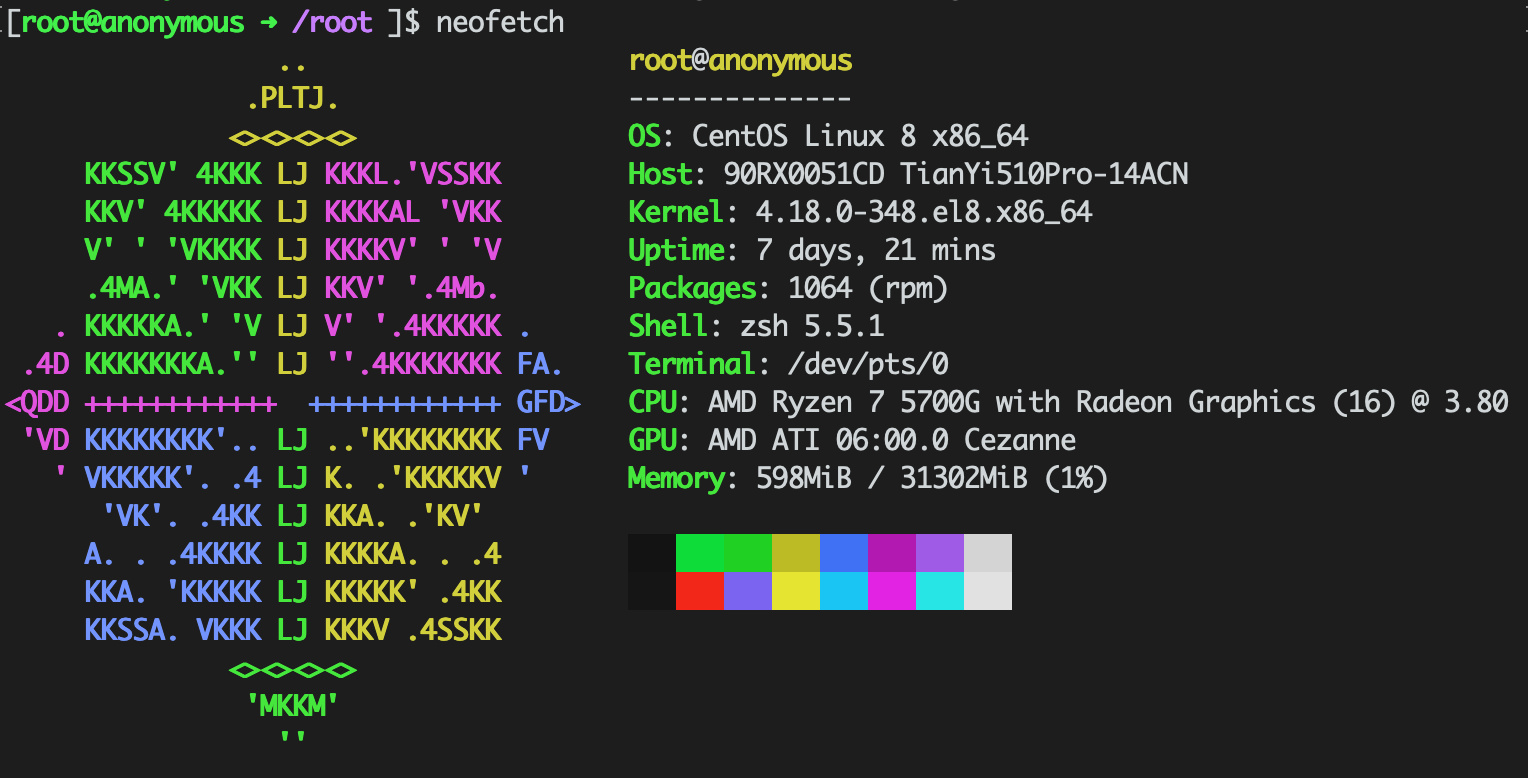MySQL单表超过2000万后会怎么样
实验学习:MySQL单表超过2000万条记录,分析现象。
1. 背景
使用MySQL存数据时,业内有个传言是单表不要超过2000万条记录,若超过则查询效率会显著降低。
本博客对该情况进行实验记录,在实践中加深学习。
1. 理论
回翻MySQL索引实现的文章:48、B+树:MySQL数据库索引是如何实现的?,结合本文场景加深一下理解。
InnoDB索引说明
MySQL 5.1之后的默认存储引擎是
InnoDB,其索引基于B+树实现。虽然内存访问(ns级别)比磁盘访问(ms级别)快很多(万倍甚至几十万倍),索引存放在内存中查找效率很高,但是随着数据量上升,需要的内存也会很多,相对于磁盘来说内存的成本昂贵得多,服务器上内存上限也比磁盘要低得多。所以InnoDB的索引有一部分是存储在磁盘上的。
B+树通过二叉查找树演化而来,是一个多叉树(以下假设m叉树),支持区间查找。非叶子结点存储索引值,叶子节点存储数据,数据之间通过双向链表链接,便于区间查找。
索引设计时使用m叉树的方式来降低树的高度,以减少查找MySQL记录时磁盘的IO操作次数。
m越大,B+树的高度越低,但也不是越大越好。操作系统按页(
PAGE_SIZE,一般4096)来读取数据,一次读取的数据量超过一页则会触发多次IO操作,所以一般会尽量让每个节点(m个索引值组成一个节点)大小等于PAGE_SIZE,读取一个节点只需要一次IO操作。数据插入、删除时会更新索引,为了时刻维持m叉树,会涉及到B+树的
分裂和合并,索引量越大,数据插入、删除会越慢。B+树
先讲讲B树(B-树,B-Tree)。
键:B树中的存储元素是键,是用于指向数据记录的指针。阶:B树的阶为最大子节点数量,其比键的数量大1。一般称一个B树为M阶的B树,那么该B树最多拥有M个子节点,节点中最多拥有M-1个键数据量特别大时,内存中存不下所有数据了,一部分数据就存储在磁盘中。磁盘操作比较耗时(如上所述跟内存差好几个数量级),B树的出现就是为了减少磁盘的IO操作。
B树在中间节点中存储数据指针(指向包含键值的磁盘文件块的指针),导致节点数据量较大进而导致树层数多,影响查询效率;
B+树仅在树的叶子结点中存储数据指针,中间节点存储
2. 实验
实验说明
基础目标:
- 给出为什么不要超过 2000w 行的数据支持
- 100、500、1000、2000万他们的查询时间是线性增加的吗?
踮踮脚的目标:
- 从 B+ 树原理结合测试数据分析为什么
- 以及你自己能想到的验证、结论等都可以——开放式
测试表
1 2 3 4 5 6 7
CREATE TABLE test( id int NOT NULL AUTO_INCREMENT PRIMARY KEY comment '主键', person_id tinyint not null comment '用户id', person_name VARCHAR(200) comment '用户名称', gmt_create datetime comment '创建时间', gmt_modified datetime comment '修改时间' ) comment '人员信息表';
select count() from test;
select count() from test where id=XXX;
实验过程
1
2
3
4
5
6
7
8
9
10
11
12
13
14
15
16
17
18
19
20
21
22
23
24
25
26
27
28
29
30
31
32
33
34
35
36
37
38
39
40
41
42
43
44
45
46
47
48
49
50
51
52
53
54
55
56
57
58
59
60
61
62
63
64
65
66
67
68
69
70
#!/bin/bash
# 测试mysql单表超2000万的查询效率
INIT_RAWS=2000
ROUND=20
function op_db() {
# -N 不要列名,-s不要表格
mysql -uroot -p123456 -Dxddata -N -s -e "$1" 2>/dev/null
}
function init() {
op_db "truncate table test;"
# 建一个非主键索引 person_name 对比
op_db "CREATE TABLE test(
id int NOT NULL AUTO_INCREMENT PRIMARY KEY comment '主键',
person_id int not null comment '用户id',
person_name VARCHAR(200) comment '用户名称',
gmt_create datetime comment '创建时间',
gmt_modified datetime comment '修改时间',
index(person_name)
) comment '人员信息表';"
}
function init_insert() {
for ((i=1; i<=$INIT_RAWS; i++)); do
local id=$i
local name="test_$id"
op_db "insert into test(person_id, person_name, gmt_create, gmt_modified) values($id, $name, NOW(), NOW());"
done
}
function double_insert() {
op_db "insert into test(person_id, person_name, gmt_create, gmt_modified) select person_id, person_name, NOW(), NOW() from test"
}
function main()
{
if [[ $# -eq 2 ]]; then
INIT_RAWS=$1
ROUND=$2
fi
local count=0
for ((i=1; i<=$ROUND; i++)); do
before=$(( $(date +%s%N)/1000000 ))
double_insert
after=$(( $(date +%s%N)/1000000 ))
insert_cost=$(($after - $before))
before=$(( $(date +%s%N)/1000000 ))
count = $(op_db "select count(*) from test;")
after=$(( $(date +%s%N)/1000000 ))
select_cost=$(($after - $before))
before=$(( $(date +%s%N)/1000000 ))
op_db "select count(*) from test where id=999; "
after=$(( $(date +%s%N)/1000000 ))
select_where_id_cost=$(($after - $before))
before=$(( $(date +%s%N)/1000000 ))
op_db "select count(*) from test where person_name='test_99'; "
after=$(( $(date +%s%N)/1000000 ))
select_where_name_cost=$(($after - $before))
echo "round:$i, count:$count, insert_cost:$insert_cost ms, select_cost:$select_cost ms, select_where_id_cost:$select_where_id_cost ms, select_where_name_cost:$select_where_name_cost ms"
done
}
main $@
TODO (MySQL暂时没一个比较好的体感,暂时刮起)
